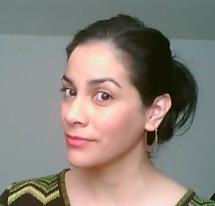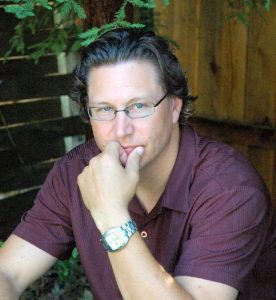By
Cisais
|
Anxiety and Trauma ,
Motivation and Choice
The last time I checked the DSM-IV (and I try not to check it too often), the treatment of Decidophobia, the fear of making decisions, included everything from “cognitive re-mapping” to anti-depressants. Pretty serious stuff for a common problem.
But, if it’s so common, what’s the fuss all about? That is the real damage to indecision?
Often, people who fear making decisions tend to vacillate and procrastinate in an effort to avoid the choices they must make. When the fear of making decisions begins to harm the psyche and affect daily life, it can become a serious problem. Even on a lesser level, individuals who vacillate , are ambiguous or procrastinate can hurt others and their relationships with this indecision. Consistent lack of follow through breeds resentment and distrust.
Making decisions requires confidence. It requires a degree of certainty. When tough decisions with serious consequences are called for, it can be difficult for some people to know what is best. The fear of making the wrong decision can cause a sort of mental paralysis. Individuals who are unable to be decisive may feel angry and agitated when faced with choices, because they are unsure of themselves.
 In the business world and in personal life, the choices we make can define us. The decisions we make can be wrong, and if they are, they can be very costly. In our busy world, every day brings a barrage of new decisions to be made. But what if decision making could be as easy and instinctual as dealing with all those small choices, such as what to order at a restaurant?
In the business world and in personal life, the choices we make can define us. The decisions we make can be wrong, and if they are, they can be very costly. In our busy world, every day brings a barrage of new decisions to be made. But what if decision making could be as easy and instinctual as dealing with all those small choices, such as what to order at a restaurant?
Effortless Decision Making
I’ve been learning (but haven’t mastered) the principles of Effortless Decision-Making. It’s a way of making decisions where you can flow through the constant stream of decisions we must make every day of our lives, without getting stuck, without being paralyzed by fear. We choose, and flow, and we let go of worry.
What follows is a very brief guide to making effortless decisions.
Let go of perfection.
We’ll never make perfect decisions, and wanting to make the perfect choice keeps us paralyzed.
Get more information.
Don’t let this hold you up, but if you’re stuck it’s often because you don’t have the necessary info. What info do you need? Can you easily get it? Get it now if you can, but don’t be held up by the lack of info.
Try and err.
If you don’t have enough info — and that’s usually the case — just choose. It doesn’t really matter what you choose, just make a choice and let go of the idea of making the right choice. Now live with that choice for a bit, and see what happens. This is called trial and error, and it’s often the best way to get information. We try something, and see how it works out — and then we have more information to make better decisions in the future. When you look at it this way, decisions are just a series of trial and error experiments, and it doesn’t matter what the outcomes are, because any outcome is good information.
Try intuition.
If you’re stuck and don’t have enough info, let go of worry and just make a choice. How do you make a choice? You could flip a coin, but you could also just go with your gut reaction. What does your intuition say? Start listening to it — often it’s an unconscious decision based on lots of factors that we can’t consciously process, so a part of our unconscious brain processes it and comes up with a split-second decision. Intuition can be wrong, but that’s still OK: we’re going to learn from the results no matter what. So just learn to hear your intuition, and go with it.
Let go of worry.
If you learn the above principles, it’s easy to see that there’s nothing to worry about. You don’t need to be perfect, and a decision is very rarely the end of the world (at least, no decision has led to the end of the world yet). Sure, history is littered with the corpses of those who made bad decisions, but there are a million times more decisions that were made without any really bad consequences. You won’t die, you’ll just learn. So don’t worry — just choose.
Practice, and flow.
You’ll get better at this with practice, as you learn to let go of perfection and worry and see decisions as experiments. You’ll learn to do it better, faster, with more intuition. Soon you’ll flow through your daily decisions with ease. Do it consciously at first, keeping in mind all of the above principles, but it gets easier as you go.
Making decisions is something we do all day long, and it doesn’t have to be difficult. We build certain decisions up in our minds because we think they’re incredibly important, but in truth they’re rarely that big a deal. This isn’t the Cuban Missile Crisis — we’re not deciding the fate of a nation. See choice as an opportunity to learn, and you’ll be happy for every single effortless decision that comes your way.
 One-on-One Coaching
One-on-One Coaching


 Those of us on the path of personal and spiritual growth have a tendency to analyze our unhappiness in order to find the causes and make improvements. But it is just as important, if not more so, to analyze our happiness. Since we have the ability to rise above and observe our emotions, we can recognize when we are feeling joyful and content. Then we can harness the power of the moment by savoring our feelings and taking time to be grateful for them.
Those of us on the path of personal and spiritual growth have a tendency to analyze our unhappiness in order to find the causes and make improvements. But it is just as important, if not more so, to analyze our happiness. Since we have the ability to rise above and observe our emotions, we can recognize when we are feeling joyful and content. Then we can harness the power of the moment by savoring our feelings and taking time to be grateful for them.



